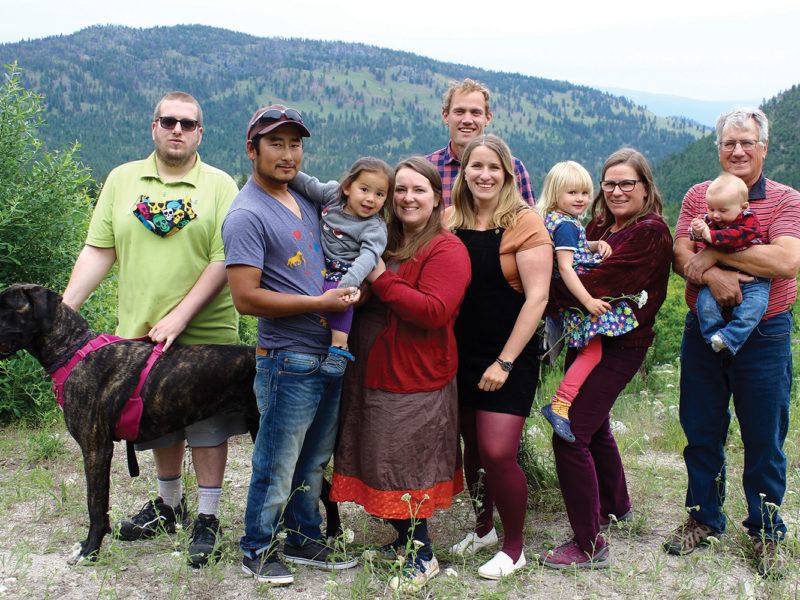SUMMERLAND – Carcajou Fruit Co. is a 160-acre family business that typically hires 60 domestic workers to pick their cherries over a six-week period each summer.
But the COVID-19 pandemic last summer changed the labour game for the family-owned orchard. While the farm was lucky to receive 13 foreign workers through the Seasonal Agricultural Worker Program, the farm’s human resources manager and COVID-19 coordinator Claire Tamang gave growers attending the Lower Mainland Horticultural Improvement Association’s short course at the end of January tips on managing domestic workers during the pandemic.
“In the past, we have been able to recruit backpackers, both from overseas and eastern Canada,” says Tamang.
With the border closed to non-essential travel and interprovincial travel discouraged, Carcajou was forced to look closer to home for harvest help.
Carcajou has a colourful, friendly website where workers can apply. There are short descriptions of the jobs, working conditions and benefits.
“We were able to attract a number of local restaurant workers who had been laid off,” says Tamang. “They had accommodation in the area and transport, so that was positive for us, and we paid them for travelling time.”
Carcajou was also able to hire a number of tree planters whose season usually runs from April to June.
“They are used to piecework and they already had experience living in a COVID-safe camp,” says Tamang.
Unlike for foreign workers, farmers aren’t required to provide housing for seasonal domestic workers such as backpackers, but it’s no secret that good picker camps attract the best workers. For out-of-town workers, Carcajou has three separate picker camps. It charges workers $5 a day, which covers the cost of tent platforms, fully equipped kitchen shelters, washroom and laundry facilities, lockers, WiFi and a full-time cleaner. In 2020, anyone who used their own vehicle to drive themselves and others to the orchards did not pay the $5 daily camp fee.
This is a significant improvement over some camps that spring up in orchards over the summer. But Carcajou had expectations of pickers in return.
“We are not a party camp,” says Tamang, noting that long-standing policies remained in place. “We don’t allow pets or outside visitors; this is our home, too. We needed people to stay put.”
All workers completed the AgSafe COVID-19 awareness training first, then attended a mandatory orientation session that set out Carcajou’s expectations.
“We ended up having a lot of first-year pickers,” says Tamang. “They weren’t as fast as some of our backpacker crews, but they were happy to have work and abide by our expectations.”
Employees were grouped in work units of five that would live, eat and travel to the orchards together. They would self-assess each morning, mask-up in close situations, use sanitizing stations as they entered the orchard and refrain from mixing with other groups. If there was a pause in the harvest, workers weren’t to be picking up jobs at neighbouring farms.
“If they wanted extra work on a Saturday we found something for them to do,” says Tamang.
And there were to be none of the usual summer bush parties.
“We were strict, but we figured the risk of a shut-down from COVID and not being able to bring in our highly perishable crop far outweighed replacing a worker,” explains Tamang. “It helped that someone else was making the rules, but we expect that we will continue most of our routines in future summers.”
Four workers had to self-isolate while waiting for test results and received isolation pay, but there wasn’t a single case of COVID among Carcajou staff the entire summer.
Retaining travelling summer help can be challenging, so Carcajou pays what it calls a “bitter-end bonus” of 2-4 cents a pound for workers who stay the entire season.
“We would often have pickers who would take the last week off to head to the beach before going back to school,” says Tamang. “But most of our crop are late season cherries that we pick right up till the end of August.”
Even so, there was still time for fun.
“We had someone volunteer to be the social director and they organized beach days and we had our usual year-end party, though it was not the traditional blow out,” says Tamang.
Two chefs among the pickers were hired to cater a take-out bowl party and there was a musician, but employees stayed in their work units.
“We didn’t want to be the source of an exposure right at the end of our season,” says Tamang. “Workers packed up their camps and were on the road the next morning.”


 Growers anxious about labour
Growers anxious about labour